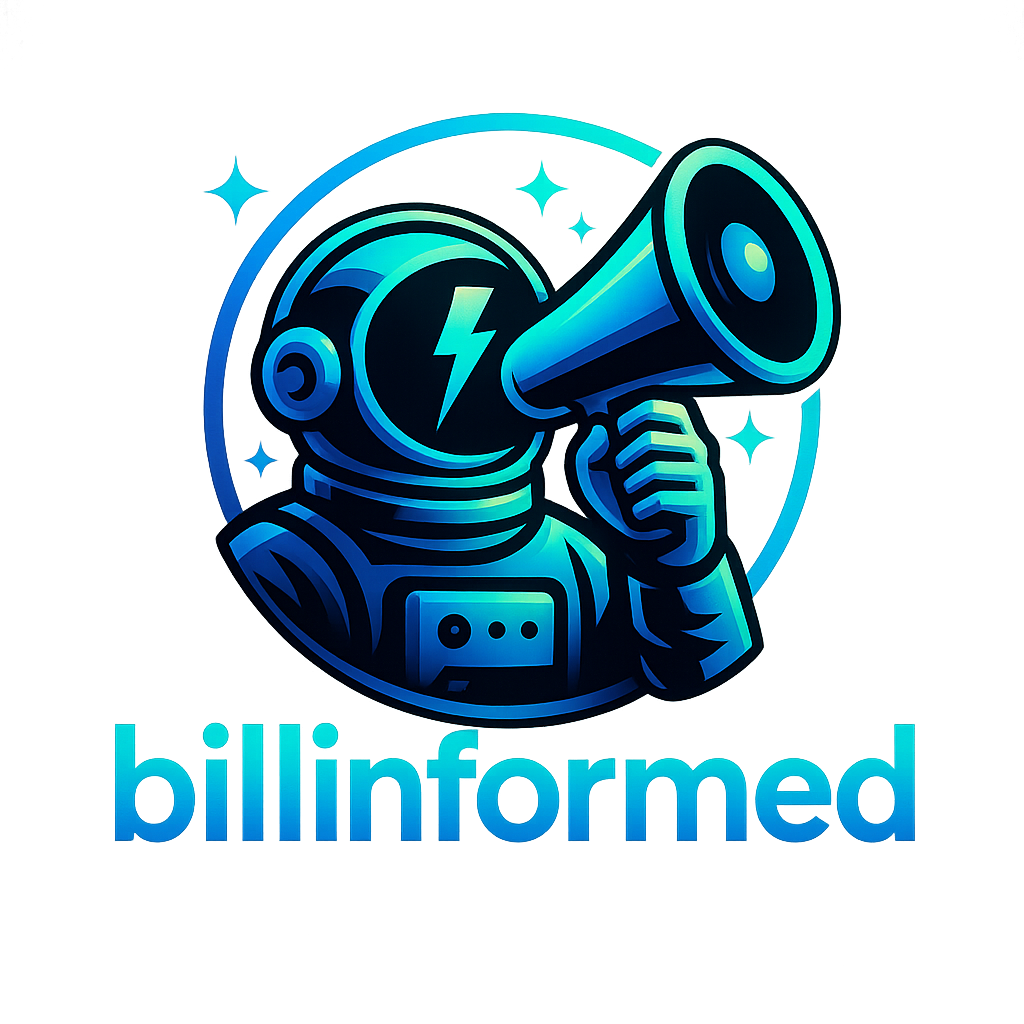Or: How We Taught Machines to Eat Our Brains While We Applauded the Innovation
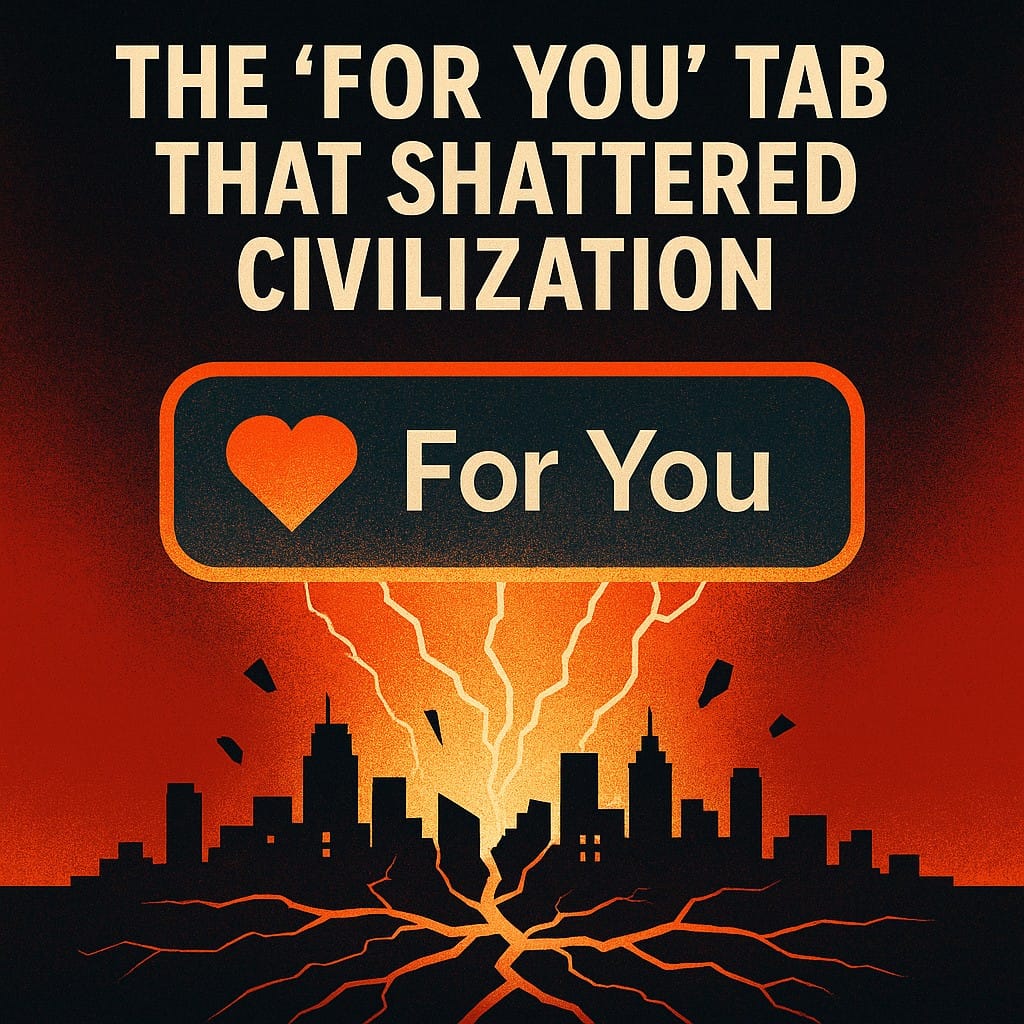
Let me tell you a story about the most spectacular act of civilizational self-immolation since the Romans decided lead pipes were a brilliant innovation, except this time we did it on purpose, recorded it in 4K, and monetized the fucking footage.
Back in 2009, if you wanted to marinate your brain in weapons-grade stupidity, you actually had to work for it—like some kind of demented archaeological expedition through the bowels of the internet. You'd have to actively type "chemtrails are turning the frogs gay" into a search bar, then click through seventeen increasingly unhinged websites hosted on servers that probably doubled as space heaters in someone's basement. It was inconvenient enough that most people couldn't be bothered to destroy their own cognitive abilities. Those were simpler times, when ignorance still required effort and conspiracy theories came with a built-in laziness filter.
Fast forward to today, and that content doesn't just find you—it hunts you down with the relentless efficiency of a terminator programmed by behavioural economists on bath salts. It's been precision-engineered to exploit every psychological vulnerability you didn't even know you had, delivered at the exact moment when your critical thinking is at its lowest ebb, which for most people turns out to be roughly eighteen hours a day.
This isn't your garden-variety drug dealer we're talking about here. This is like having a drug dealer who's also a licensed therapist, a data scientist with multiple PhDs in behavioural manipulation, and a psychic who can predict your emotional state based on how long you paused before scrolling past that video of a cat wearing a tiny hat. And they get paid every single time they successfully turn your brain into scrambled eggs.
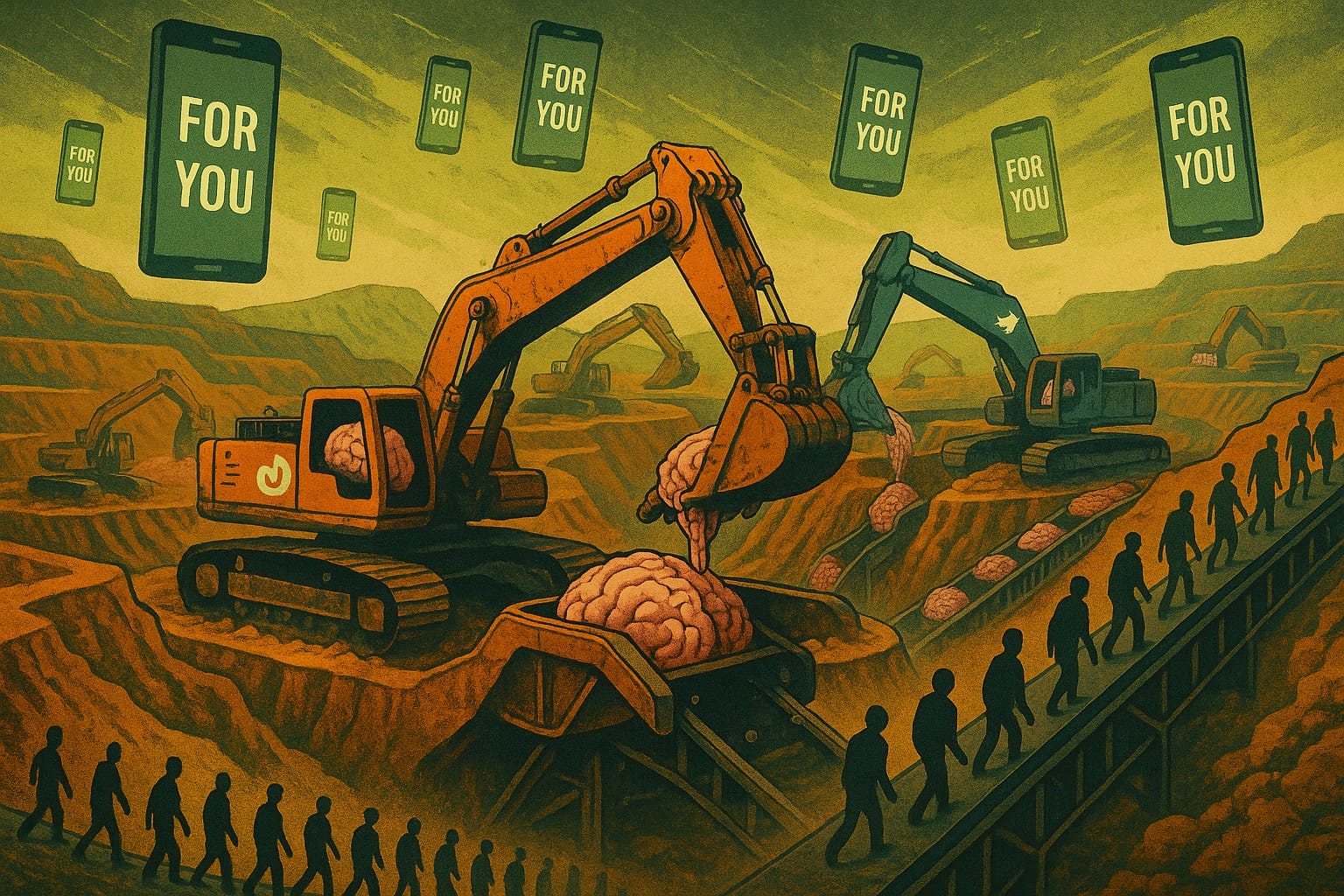
How We Got Here: When Brains Became Just Another Resource to Strip-Mine
You've probably heard the standard critique that these feeds optimize for "engagement," which sounds about as threatening as a suburban book club. But that entirely misses the exquisite horror of what's actually happening here—we're witnessing the most successful psychological warfare campaign in human history, except the enemy is us, the battlefield is our own minds, and somehow, we're paying for the privilege of being conquered.
These systems aren't just serving you content. They're conducting the largest behavioural modification experiment ever conceived, learning not just what billions of people want to see, but how to systematically bypass their ability to think clearly about anything. It's like being trapped in a chess game where your opponent keeps changing the rules, except the chessboard is your brain, the pieces are your thoughts, and winning means you forget you ever knew how to play chess in the first place.
Here's what actually happened while we were all distracted by arguing about whether the dress was blue or gold: we built an entire economic system that can only function by treating human consciousness as a natural resource to be strip-mined. When a platform's stock price depends on "daily active users" and "time spent," you're not building a communication tool anymore—you're constructing a cognitive strip mine that happens to have social media features welded onto the side like some nightmarish Frankenstein's monster of late-stage capitalism.
If McDonald's could only make money by ensuring you literally never stopped eating—not just that you came back for more, but that you physically could not stop chewing—they'd probably hire teams of neuroscientists, behavioral economists, and probably some kind of wizard to figure out exactly which combination of salt, fat, sugar, and psychological manipulation would keep your jaw moving until you died of exhaustion. That's basically what happened, except instead of French fries, they're serving you an endless stream of content designed to keep your thumb moving and your prefrontal cortex permanently offline.
Engineered Addiction Was Just the Beginning
So, let's talk about just how sophisticated this whole operation has become, because calling these platforms "addictive" is like calling the Hindenburg "a minor transportation hiccup." Addiction implies you're still fundamentally you, just with a dependency issue you need to work through with a good therapist and maybe some awkward conversations at dinner parties.
What these platforms do is more fundamental than addiction—they're literally engineering new patterns of human cognition, like some demented Dr. Frankenstein of the Information Age, except instead of stitching together corpses, they're stitching together fragments of your attention span into something that no longer resembles human consciousness.
When Instagram introduced what behavioural economists call "variable ratio reward schedules"—the same psychological mechanism that makes slot machines so devastatingly effective at turning retirees into zombie gamblers—they weren't just copying casino design. They were creating an entirely new framework for how billions of people process information and make decisions about reality itself. Every slot machine in Vegas wishes it could be as efficient at destroying human agency as your Instagram feed.
But TikTok? Sweet mother of algorithmic manipulation, TikTok took this to a level that would make a Las Vegas casino operator weep with jealousy. The algorithm doesn't just learn what content you engage with—it creates a psychological profile more detailed than what your mother knows about you, mapping your emotional vulnerabilities with a precision that would make your therapist quit their job and become a sheep farmer in New Zealand.
Then—and this is the truly diabolical part that makes me wonder if we're living in some kind of cosmic joke—it systematically induces those exact emotional states to maximize what they euphemistically call "engagement." It's like having a dealer who not only knows your drug of choice but can predict exactly when you'll be most desperate for a hit, what flavour of desperation will make you most compliant, and how to time the delivery for maximum psychological devastation.
This isn't content curation. This is cognitive architecture designed by people who clearly never read a single ethics textbook or, if they did, used it as kindling for the bonfire of human dignity they've been tending for the past fifteen years.
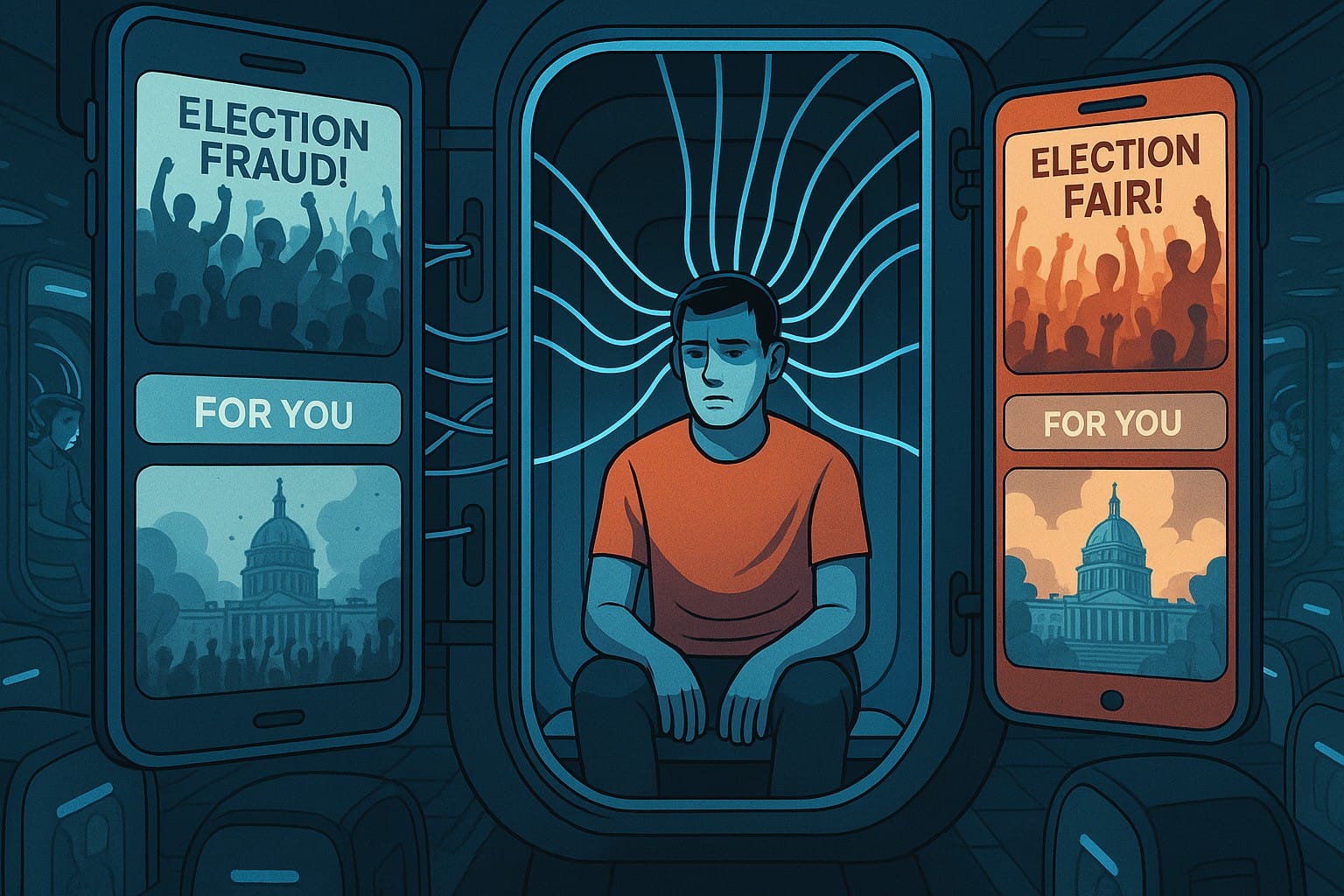
The Rise of Personalized Reality Bubbles
And here's where things get genuinely, spectacularly dystopian—not in the fun "oh look, flying cars" way, but in the "holy shit, we accidentally invented a machine for destroying shared reality" way. When every piece of information you consume comes pre-filtered through an engagement-optimizing algorithm, you lose more than diverse perspectives. You lose the fundamental human ability to construct shared meaning with other human beings.
Each user exists in what researchers politely call a "personalized reality tunnel," though "algorithmic isolation chamber designed to maximize click-through rates" might be more accurate. These aren't optimized for truth, understanding, or even your general well-being—they're optimized for emotional arousal and behavioural compliance, because those are the metrics that translate most directly into the kind of advertising revenue that makes shareholders literally weep with joy.
The recommendation engine becomes your personal epistemological foundation, your customized hallucination generator, your bespoke reality-distortion field fine-tuned by behavioural economists to make the hallucinations feel more real and more emotionally satisfying than actual reality. It's like being trapped in Plato's Cave, except the shadows on the wall are personalized based on your browsing history and designed to make you click "share."
This creates what researchers call "epistemic fragmentation," though "the systematic shredding of our collective ability to understand the world together" might be more honest. We've moved beyond filter bubbles—we now inhabit personalized cognitive universes specifically engineered to be mutually incomprehensible.
Think about what this means for something as basic as talking to your neighbour about, say, whether vaccines work. You're not just starting from different values or priorities—you're operating from entirely different sets of facts, each curated by algorithms that prioritize emotional engagement over empirical accuracy. It's like trying to build a bridge when you can't even agree on which dimension of reality you're standing in.
The Death of Expertise (Or: How We Learned to Love Influencers Who Know Nothing)
Meanwhile, this whole catastrophe has created what you might call the "expertise apocalypse"—the systematic replacement of knowledge with algorithmic compatibility. In this brave new world, authority doesn't come from understanding, wisdom, or even basic competence. It comes from your ability to trigger the right emotional responses in the right sequence to keep the engagement metrics climbing like a middle manager's blood pressure during budget season.
An epidemiologist with thirty years of research experience now finds themselves algorithmically outranked by a wellness influencer whose greatest qualification is an uncanny ability to make people feel smart for believing something that makes actual experts want to drink themselves to death. Guess who the algorithm promotes? Here's a hint: it's not the person who spent three decades studying how diseases work.
The system doesn't just fail to reward expertise—it actively punishes it like some reverse meritocracy designed by people who think Idiocracy was an instruction manual. Nuanced thinking doesn't trigger fight-or-flight responses. Careful analysis doesn't generate the neurochemical cocktail that keeps thumbs scrolling and ad revenue flowing. Intellectual humility doesn't create the artificial confidence that makes people feel good about sharing completely unhinged theories with their extended family.
During COVID-19, we got to watch this play out in real time, like some horrifying nature documentary about the collapse of human civilization. Actual epidemiologists—people who spent their entire careers studying how to keep humans alive during pandemics—found themselves systematically outranked by wellness influencers who knew how to game engagement algorithms and had a better understanding of human psychology than infectious disease transmission.
A viral post about quantum physics written by someone whose understanding of science peaked in seventh grade can reach millions of people, while peer-reviewed research remains buried in algorithmic obscurity like some kind of intellectual archaeological site. The algorithm treats them as equivalent because, from its perspective, they are equivalent—they're both just content that either does or doesn't keep users engaged long enough to see another advertisement.
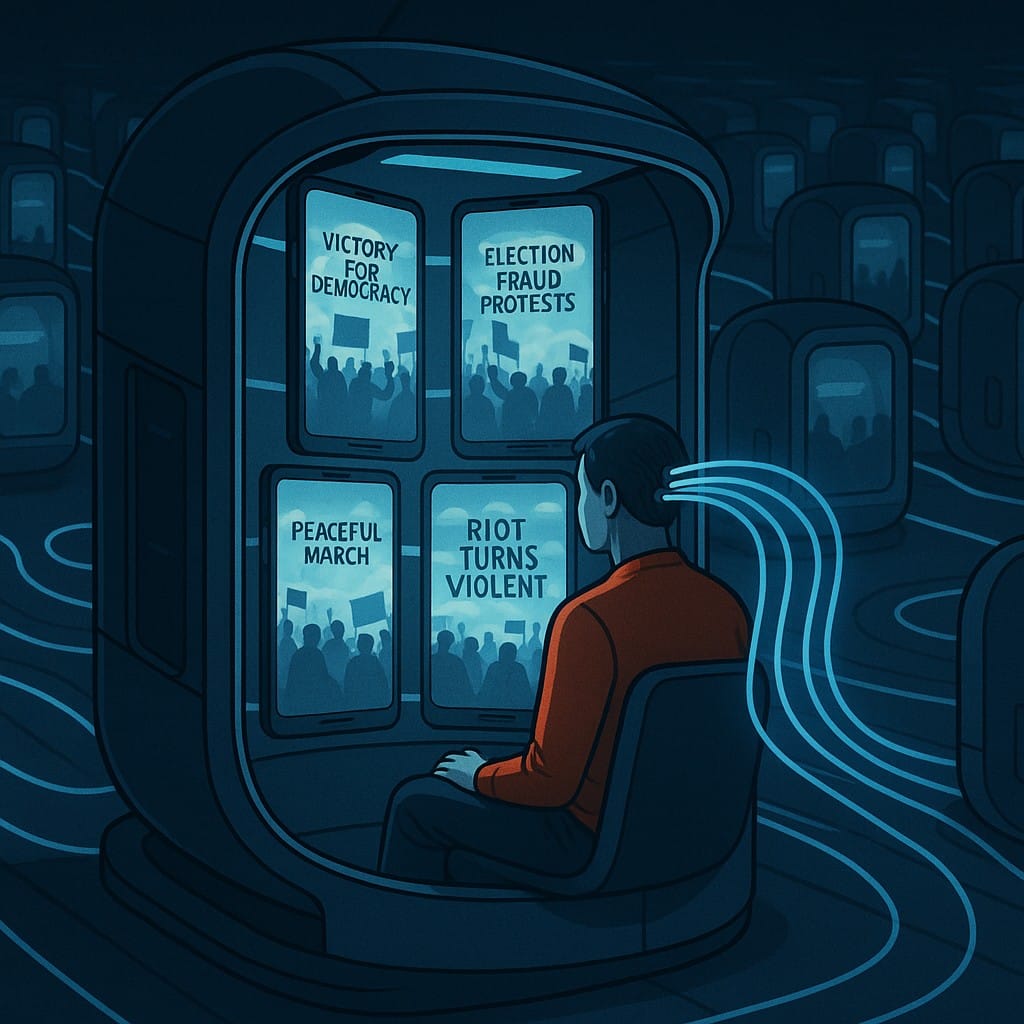
The Legal Illusion That Lets It All Happen
This brings us to one of the most exquisite pieces of legal performance art in modern history: Section 230 and the absolutely magnificent fiction that these companies are neutral platforms rather than publishers. It's like running a newspaper where you decide which stories get printed, in what order, with what headlines, whether they appear on the front page or buried in the classified ads, and which ones get delivered to houses where people are most likely to throw them at their neighbors—then claiming with a straight face that you're just a neutral mail service.
When YouTube's algorithm creates systematic pathways that lead users from "how to bake cookies" directly to "why cookies are part of a globalist conspiracy to control your mind"—something their own internal research documented and that they've addressed with roughly the same urgency as a three-toed sloth crossing a highway—that's not passive hosting. That's editorial curation with the precision of a Swiss watchmaker and the ethical oversight of a payday loan operation.
These platforms have engineered a truly magnificent legal paradox: they're simultaneously too sophisticated to regulate (because their AI systems are too complex for lawmakers who still think the internet is a series of tubes) and too simple to be held accountable (because they're just neutral conduits for user content, honest!). It's regulatory arbitrage disguised as technological innovation—like claiming you're not responsible for the car crash because you only built the steering wheel, the accelerator, the GPS, and the part of the brain that decides where to drive, but technically not the actual chassis.
But here's the thing that makes this whole situation even more absurd: even if we could somehow fix Section 230 tomorrow, it wouldn't solve the core problem. As long as these platforms make money by capturing and monetizing human attention like some cognitive livestock operation, they'll find new ways to hack our psychology faster than regulators can understand what the old ways were doing to us.
The business model itself is the disease. Everything else is just increasingly creative symptoms.
Living Through the Great Reality Breakdown
What we're witnessing is something genuinely unprecedented in human history: the systematic dismantling of our collective ability to distinguish between what's real and what's just emotionally satisfying. We're living through what future historians—assuming there are still historians in the future, and they haven't all been replaced by AI influencers who make history "more engaging"—might call the Great Cognitive Transition.
The platforms create what you might call "epistemic learned helplessness"—users get bombarded with conflicting information that's been optimized for engagement rather than accuracy until they eventually give up trying to figure out what's actually true. Why bother evaluating evidence when your feed has been specifically designed to make you feel like your gut instincts are always right, and thinking too hard gets in the way of the emotional experience of being perpetually outraged about something?
This isn't just information overload—that would almost be manageable, like trying to drink from a fire hose, but at least knowing the water is clean. This is the systematic weaponization of our cognitive biases against our ability to think clearly about anything. When every piece of content is specifically designed to bypass your critical thinking like some intellectual TSA checkpoint, your critical thinking muscles start to atrophy from lack of use.
Democracy, it turns out, requires citizens who can engage in some version of shared reasoning about shared problems. But when algorithmic curation systematically fragments our shared reality into billions of personalized psychological manipulation chambers, we lose the foundation that makes democratic deliberation possible. We're not just disagreeing about solutions anymore—we're operating from completely different understandings of what problems exist, what reality is, and whether facts are even a thing that matters.
The Awareness Trap: Why Personal Fixes Don't Work
So naturally, when confronted with this civilizational-scale catastrophe, our response has been to place the burden of solving it entirely on individual users. We're asking people to develop sophisticated media literacy skills while being actively hunted by multibillion-dollar behaviour modification programs staffed by PhD researchers with unlimited resources and real-time feedback from billions of test subjects.
It's like teaching people to recognize pickpockets while they're walking through a casino that was designed by neuroscientists, operated by behavioural economists, and specifically optimized to make them as cognitively impaired as possible. Even if they memorize every trick in the book, the entire environment is working against them with the ruthless efficiency of natural selection, except instead of survival of the fittest, it's survival of whoever can generate the most advertising revenue.
The most maddening part is how we've somehow decided that individual users should be responsible for protecting themselves from manipulation techniques that were literally designed by teams of experts to be undetectable. Telling someone to "just curate their media diet more carefully" is like telling them to "just ignore" the tobacco industry's marketing while Philip Morris gets to conduct unlimited psychological experiments on their brain chemistry with a research budget that dwarfs most countries' GDP.
And even if you somehow develop perfect algorithmic immunity—if you curate your own information diet with the precision of a museum curator and the paranoia of someone who's actually paying attention—you're still trapped by network effects. You still live in a society where other people's political opinions were shaped by engagement-maximizing algorithms designed by people who've never had to consider whether their optimization targets were compatible with human civilization.
Your carefully informed vote counts exactly the same as someone whose entire worldview was constructed by TikTok's recommendation engine during a particularly effective advertising campaign for protein powder and political extremism.
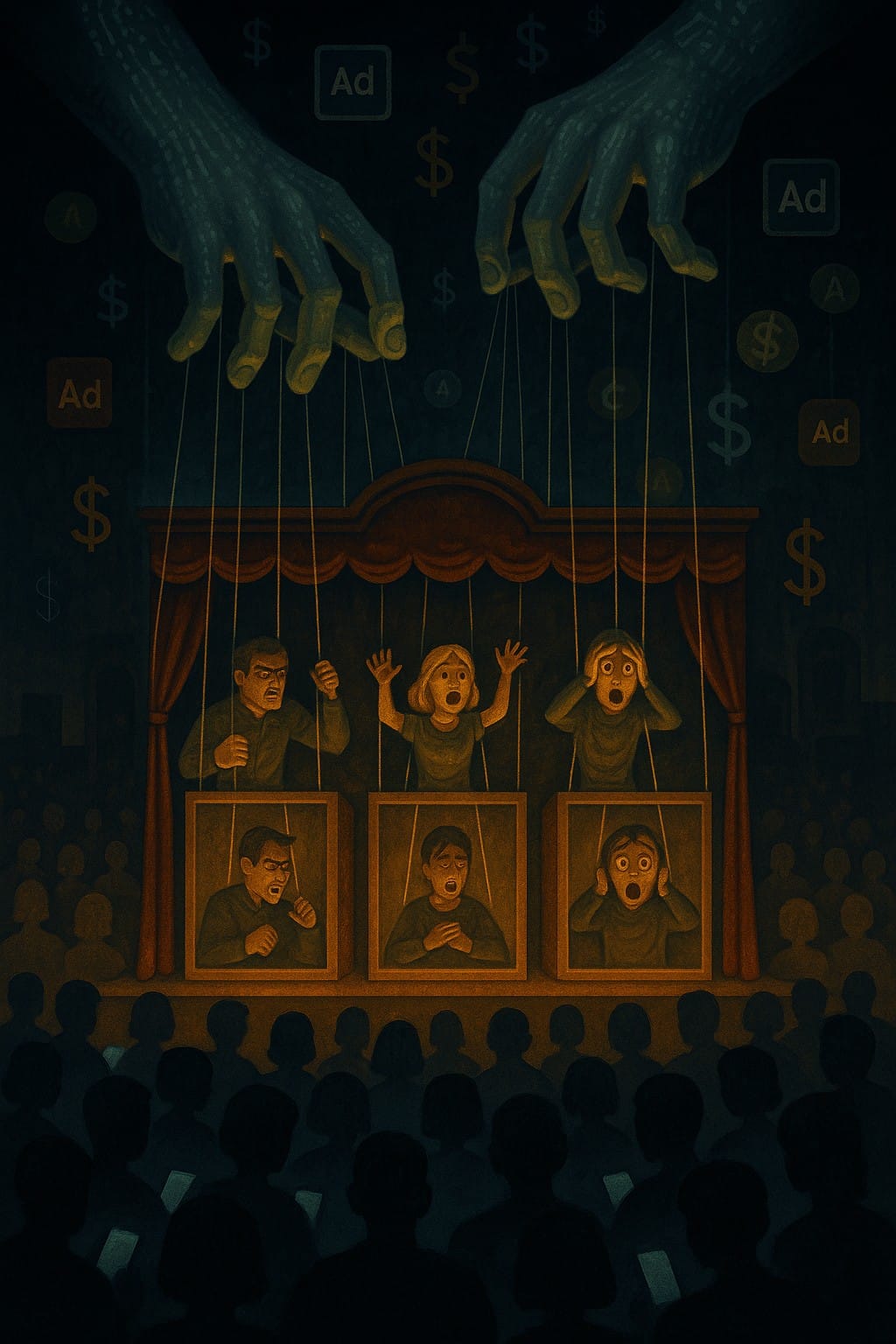
What a Post-Algorithm Future Could Look Like
But here's where the story gets slightly less apocalyptic, like finding out the asteroid heading for Earth is only going to destroy most of civilization instead of all of it: some communities have already figured out how to build information spaces where engagement metrics don't determine truth and collective understanding matters more than individual emotional reactions.
Academic communities, for all their tedious committee meetings and incomprehensible jargon, have developed verification norms that prioritize evidence over virality. Some online spaces have managed to build cultures around slow, thoughtful engagement rather than the reactive dunking that passes for discourse on mainstream platforms. Local news organizations are experimenting with reader-funded models that don't require psychologically manipulating their audience to stay financially viable.
Digital cooperatives are building alternative social platforms designed around user well-being rather than attention capture, like some radical concept where technology might actually serve human needs instead of exploiting them. These aren't just isolated experiments—they're early prototypes of what post-algorithmic information ecosystems might look like, proof that it's possible to create spaces where the goal is understanding rather than engagement, where influence comes from insight rather than psychological manipulation.
The tools for building healthier information systems already exist, scattered around like pieces of some civilization that hasn't been entirely consumed by the attention economy yet. Decentralized networks, community-owned platforms, and new models for collective knowledge-building are emerging from the wreckage. What we need now is the collective will to use them before the cognitive damage becomes irreversible.
The Choice Before Us
We're living through a real-time experiment in what happens when you give a species that evolved in small tribal groups unlimited access to information specifically designed to trigger their most primitive emotional responses. The early results are not encouraging, and we can't exactly opt out of this experiment since we're all trapped inside it.
But the current dominance of these platforms isn't inevitable—it's a choice we're making every day, like a civilizational death wish disguised as technological progress. This represents a crucial moment in humanity's ongoing attempt to understand the world together without destroying ourselves in the process.
The battle for our cognitive future is being fought on three fronts, and right now we're losing all of them:
First, we need entirely new economic models that don't treat human attention as a commodity to be strip-mined until there's nothing left but dust and advertising revenue. We need to figure out how to fund quality information without requiring it to psychologically manipulate people, how to create incentives that reward truth over engagement, and how to build economic systems that value genuine understanding over behavioural compliance.
Second, we need new institutions designed for collective sense-making rather than personalized manipulation. We need frameworks for algorithmic accountability that actually hold these companies responsible for the cognitive damage they're causing. We need organizations that help communities distinguish between what's real and what feels emotionally satisfying. We need spaces designed to foster shared understanding instead of personalized reality tunnels optimized for maximum psychological vulnerability.
Third, we need cultural evolution to keep pace with technological change, which right now is like asking a tortoise to keep up with a rocket ship powered by human stupidity. We need new norms for how we consume and share information, collective practices for seeking truth rather than validation, and community-level defences against industrial-scale psychological manipulation.
The question isn't whether we'll move beyond the current system—it's whether we do it intentionally or wait for it to collapse under the weight of its own contradictions while taking democracy, expertise, and possibly human civilization along with it.
Right now, we're teaching people to swim in an ocean of manipulation while others work around the clock to create bigger, more targeted waves.
We need to drain the ocean and build something better. The alternative is a world where reality is determined by what keeps us scrolling, truth is defined by advertising revenue, and human consciousness becomes just another exploitable resource in the attention economy.
This isn't the civilization we wanted to build. It's time to stop pretending otherwise and start building the one we actually need.
